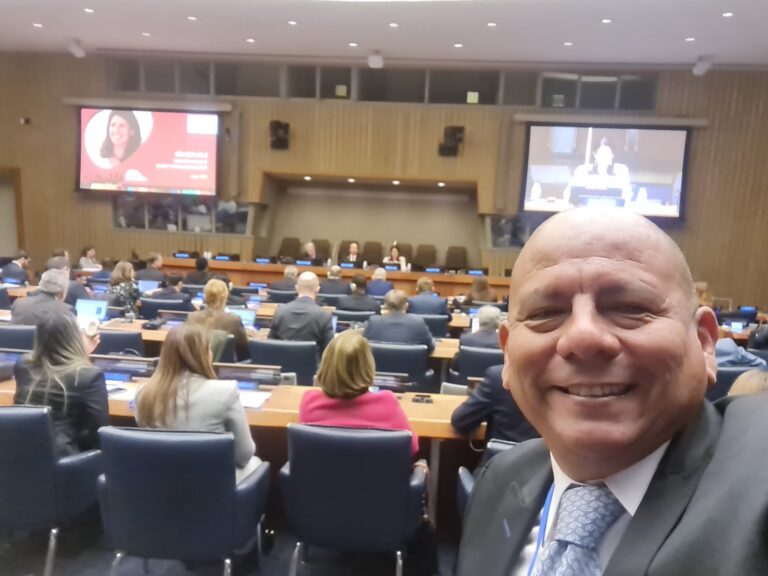April 25, 2002
Volume 4/ Number 9
Dear Colleague:
More bad news for the world’s chief cheerleader and funder of China’s one-child policy: The government of Tanzania has rejected a boatload of defective UNFPA condoms, and announced that they will be destroyed.
Despite this embarrassment, UNFPA allies in the State Department are working hard to secure U.S. funding for UNFPA.
Steven W. Mosher
President
UNFPA’s Leaky Condoms Poke Holes In Colin Powell’s Safe Sex Theory
A shipment of ten million defective condoms from the United Nations Population Fund (UNFPA) has been seized by the Tanzanian government at the port of Dar es Salaam.(1) The UNFPA condoms failed permeability tests carried out by the Tanzanian Bureau of Standards (in plain English, they leak), and the government has confirmed that they will be destroyed.
UNFPA has long promoted condom use in Africa to stop the spread of AIDS which, according to the UNFPA’s own estimates, has already infected “close to 15 per cent of persons aged 15-49” in Tanzania.(2) The discovery of a huge cache of leaky condoms raises new concerns not only about the device itself, but about the U.N. population control agency that bought and paid for them. After all, leaky condoms would not only offer no protection against HIV/AIDS, they would actually contribute to its spread by creating a false sense of security about risky sexual activity.
If ten million UNFPA condoms were found by the Tanzanian government to be defective, how many tens of millions of leaky UNFPA condoms have been distributed around the world, to other countries in Africa, or to Tanzania in the past? Is UNFPA, by failing to ensure that its condoms don’t leak, actually contributing to the spread of HIV/AIDS?
Whatever the cause of the defects, there are some in the population control movement who will not mourn the loss of life that leaky condoms will cause. After all, they believe as an article of faith that there are too many people in the world, and that our numbers must be reduced.
Recall in this context that in 1999 UNFPA representative Fran Jansen said that AIDS was helping to do the work of population control in Africa.(3)
Reports of UNFPA’s leaky condoms reached Washington just as U.S. Secretary of State Colin Powell was publicly endorsing their use before the Senate Foreign Operations Subcommittee. “I’m also a believer in protecting one’s self” with condoms,” he said. “And you may have noticed I got in a little trouble recently over this issue,” Powell joked to Senate Democrats, harkening back to statements made on MTV last February. “[B]ut that’s all
right.”(4) Condoms, however–defective or otherwise–which contribute to the spread of HIV/AIDS and STDs are not “all right” with the people of the developing world.
This new scandal comes at a time when the beleaguered U.N. agency has been under attack for collaborating with China’s one-child policy. U.S. funding for the agency has been held up by President Bush, leading UNFPA to complain that it was having to cut staff and shelve programs. Since the cost of the boatload of leaky condoms is $870,000 U.S., according to the UNFPA itself, that agency has just wasted the better part of a million dollars.
Despite its continuing problems with China, coercion and condoms, U.S. Deputy Secretary of State Richard Armitage defended UNFPA before Congress this week.
A Third Coat of Whitewash
To the House Foreign Operations subcommittee, Armitage cited an April 2002 junket to China organized by UNFPA and the Labor government of Britain, carried out with the foreknowledge, consent, and support of the communist government of the People’s Republic of China. The British delegation, said Armitage, “came back with actually very positive things to say” about UNFPA operations in China.(5)
How could it be otherwise, we ask, with Chinese officials stage-managing the whole show. With Chinese officials present, the Chinese women interviewed all parroted identical statements. Still, despite the fact that the Chinese translator was a UNFPA employee, the British did manage to confirm that people are coerced to meet targets.
This latest whitewash of the UNFPA’s China program was similar to the UNFPA’s own earlier whitewash, carried out under the guise of an “independent investigation.” UNFPA official, Nicolaas Biegman, later confessed to a Senate Subcommittee that, during his October 2001 visit to China, Chinese officials had never left his side, even for sensitive interviews with women about forced abortions and forced sterilizations.(6)
At that hearing, U.S. Senator Sam Brownback (R-KS) pointed out that federal law is very clear on the issue of forced abortion and non-voluntary sterilization programs abroad. The U.S. government may not fund groups that support these abuses.
Last September, PRI obtained first hand testimonies in China from victims of forced abortion in UNFPA’s model county program in China. Over two dozen victims and witnesses of coercion testified that voluntary family planning does not exist in this program. Abuses of forced abortion and sterilization, destruction of homes with jackhammers, imprisonment and fines for non-compliance are “recent, rampant and unrelenting.”(7)
Armitage went on to tell Congress that the State Department was preparing to send its own investigators to China for two weeks, “after which a report should be issued.”(8) Anticipating a finding favorable to the UNFPA, Armitage said: “I am very hopeful that they will come back very rapidly and allow us to spend – I think the language was not to exceed $34 million for UNFPA activities.”
A third coat of whitewash would seem to be in the works, this one to be slapped on by the U.S. State Department.
Endnotes
1. “Shipment of 10 Million Condoms Blocked,” Africa News Service, April 23, 2002.
2. “Recommendation by the Executive Director Assistance to the Government of the United Republic of Tanzania,” Executive Board of the United Nations Development Program and of the United Nations Population Fund, January 28 – February 8, 2002; http://www.unfpa.org/regions/africa/countries/tanzania/ 1tan0206.doc.
3. “UNFPA Briefing Makes Light of High Mortality in Africa,” C-FAM, Friday Fax, Vol. 2, Number 29, October 15, 1999.
4. Senate Appropriations Foreign Operations Subcommittee, April 24, 2002.
5. House Appropriations Foreign Operations Subcommittee, April 18, 2002.
6. Senate Appropriations Foreign Operations Subcommittee, February 27, 2002. 7. Ibid., Testimony of Ms. Josephine Guy, PRI’s lead investigator in China. 8. House Appropriations Foreign Operations Subcommittee.










